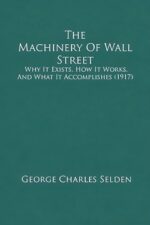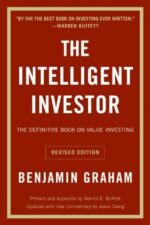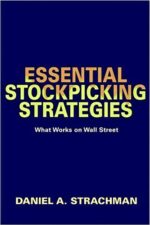Fractal Market Analysis: Applying Chaos Theory to Investment and Economics
$31.20
In Fractal Market Analysis, Peters describes complex concepts in an easy-to-follow manner for the non-mathematician. He uses fractals, rescaled range analysis and nonlinear dynamical models to explain behavior and understand price movements. These are specific tools employed by chaos scientists to map and measure physical and now, economic phenomena.
Introduction:
The first purpose of this book is to introduce the Fractal Market Hypothesisa basic reformulation of how, and why, markets function. The second purpose of the book is to present tools for analyzing markets within the fractal framework. Many existing tools can be used for this purpose. I will present new tools to add to the analyst’s toolbox, and will review existing ones. ‘
This book is not a narrative, although its primary emphasis is still conceptual. Within the conceptual framework, there is a rigorous coverage of analytical techniques. As in my previous book, I believe that anyone with a firm grounding in business statistics will find much that is useful here. The primary emphasis is not on dynamics, but on empirical statistics, that is, on analyzing time series to identify what we are dealing with.
The book is divided into five parts, plus appendices. The final appendix contains fractal distribution tables. Other relevant tables, and figures coordinated to the discussion, are interspersed in the text. Each part builds on the previous parts, but the book can be read nonsequentially by those familiar with the concepts of the first book.
- Part One: Fractal Time Series
- Part Two: Fractal (R/S) Analysis
- Part Three: Applying Fractal Analysis
- Part Four: Fractal Noise
- Part Five: Noisy Chaos
While reading the book, many of you will wonder, where is this leading? Will this help me make money? This book does not offer new trading techniques or find pockets of inefficiency that the savvy investor can profit from. It is not a book of strategy for making better predictions. Instead, it offers a new view of how markets work and how to test time series for predictability. More importantly, it gives additional information about the risks investors take, and how those risks change over time. If knowledge is power, as the old cliche goes, then the information here should be conducive, if not to power, at least to better profits.
Contents:
- Introduction to Fractal Time Series
- Failure of the Gaussian Hypothesis
- A Fractal Market Hypothesis
- Measuring Memory-The Hurst Process and R/S Analysis
- Testing R/S Analysis
- Finding Cycles: Periodic and Nonperiodic
- Case Study Methodology
- Dow Jones Industrials, 1888-1990: An Ideal Data Set
- S&P 500 Tick Data, 1989-1992: Problems with Oversampling
- Volatility: A Study in Antipersistence
- Problems with Undersampling: Gold and U.K. Inflation
- Currencies: A True Hurst Process
- Fractional Noise and R/S Analysis
- Fractal Statistics
- Applying Fractal Statistics
- Noisy Chaos and R/S Analysis
- Fractal Statistics, Noisy Chaos, and the FMH
- Understanding Markets
Fractal Market Analysis: Applying Chaos Theory to Investment and Economics By Edgar E. Peters pdf
| Author(s) | |
|---|---|
| Format | |
| Pages | 323 |
| Publication Year | 1994 |
10 reviews for Fractal Market Analysis: Applying Chaos Theory to Investment and Economics
Only logged in customers who have purchased this product may leave a review.










Quincy English (verified owner) –
Was one of the first records I know of an attempt to move away from the limitations that linear statistics has upon research in the social sciences and the complexity to encapsulate the “motivation” and dynamics within these strongly endogenous systems. Unfortunately, it is a fist theoretical approach and offers little practical application within research methods, hence a 4 star not 5.
Corbin West (verified owner) –
In addition to Peters’s other books, this one links the theory of chaos (in fact using the theory of complex dynamic systems) and the difficulty of classical approaches in economics and finance. This makes it possible to understand the paradoxes encountered in the use of traditional statistical tools.
Remi Melendez (verified owner) –
As a market analyst for an oil company, I spend considerable effort in trying to find new ways and theories to “decode” the markets and overcome uncertainty. I had hoped Mr. Peters book would offer a model of analysis to test and hopefully use.
Unfortunately, the deeper you get into the “meet and potatoes” of this text, the more disappointing it gets. This book offers nothing. Readers less skilled in the subject matter might attribute this to their shortcomings or lesser math skills. Readers well-versed in this subject matter will easily determine that this text is a waste of time…
Nikolas Short (verified owner) –
Summary from my full length review – Good book on the subject with reasonably clear explanation. College level math a requirement to read the book. Not a book for traders in general. More like a book for academics interested in analyzing market behaviours from afar.
Antonio Guevara (verified owner) –
The title only indicates part of the true subject matter of this book. The book teaches about fractal analysis of any data set, and uses financial markets as special cases to illustrate the concepts involved in fractal analysis. He begins with a brief, but facinating history of fractals, and you learn the concepts you will need to form your own trading strategies. Mr. Peters demonstrates an easy familiarity with fractals, and this serves to keep the book interesting through its most difficult mathmatical passages.
Kelly Stone (verified owner) –
3 stars for effort – trying to explain a technical analysis to a non-technical audience, but 1 star or less for content. It really shows that the author is not trained in mathematics or economics since there are numerous mistakes in the presentation, explanation and scope of many of the more subtle points, enough to qualify this as not serious. The main subjects of this book has long been basic research and deeply debated in the academic community (and not just in math, finance, and economics) but only relatively recently been the subject of attention by traders, investment MBAs and the such. Its a sexy subject but perhaps the math is too daunting, but that doesnt mean you should get it from someone who is obviously pulling together some papers in the field without the background to understand fully what the qualifications are. Thats just silly. Just because chaos theory implies that the perbutations of a butterfly in Africa can result in storms in the midwest doesnt mean the reverse, and thats what you need to predict what might happen next.
Cheyenne Fox (verified owner) –
A great book! Highly recommended. Reading this book opened my eyes to completely new territory. This will greatly benefit me professionally and intellectually.
Anne Jennings (verified owner) –
I have found Mr. Peters book excellent. I am no mathematician and still I found it easy to read. I was interested in learning about fractal market analysis and I found what I needed in this book.
Teresa Poole (verified owner) –
Brief introduction to terminology, and is great for interested readers outside finance sector to learn about classical market models, albeit man-made, misleading, or only economic academic favored “models”. This book tries to made market research more scientific, using re-scaled range analysis in hydrology of Richardson.
Zane Mathis (verified owner) –
I call it my market bible. I love this book. It is an easy read with easy applications. I must say I am manic. This is one of the reasons I find math so beautiful. There is still a long ways to go for mathematics and I truly want to be a part of additions to dynamical systems.